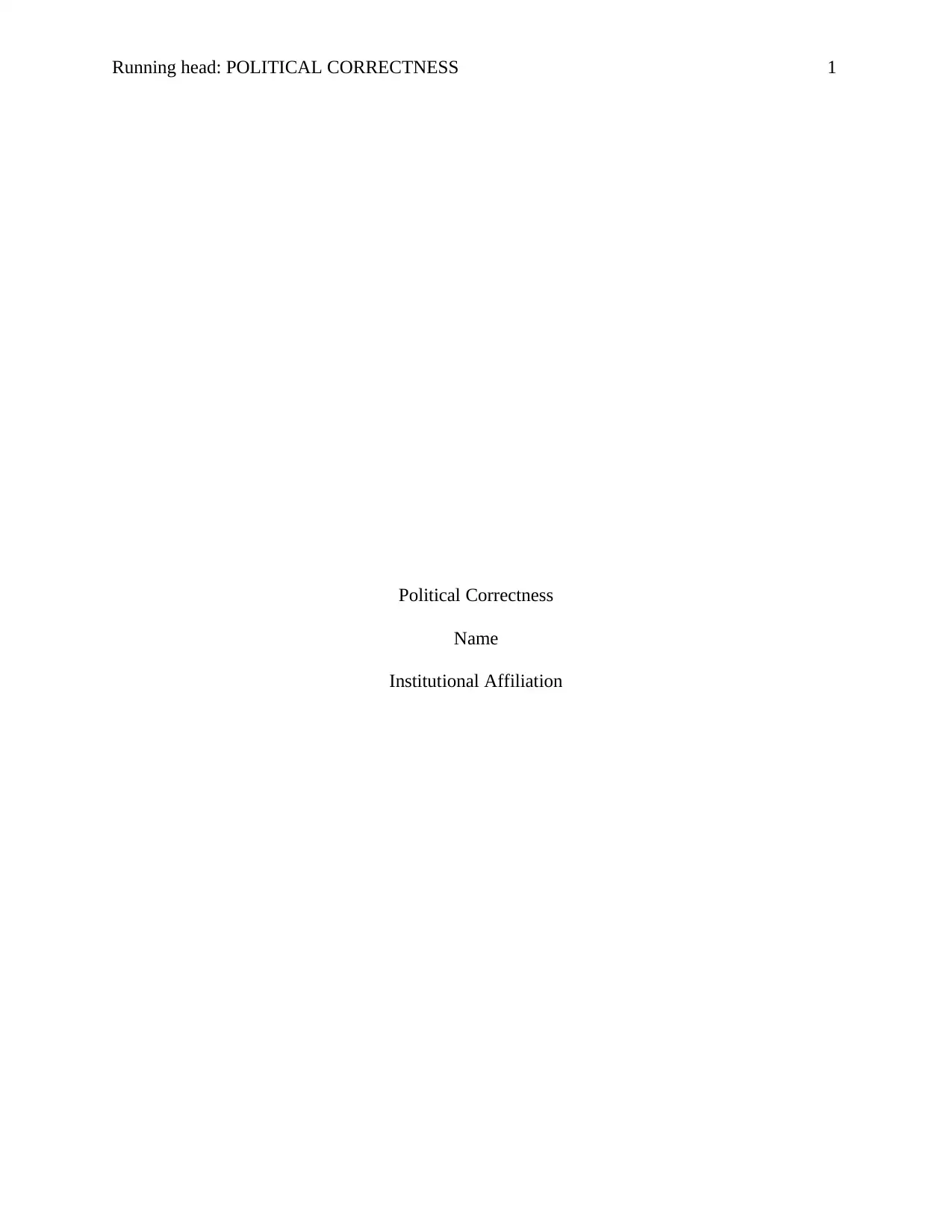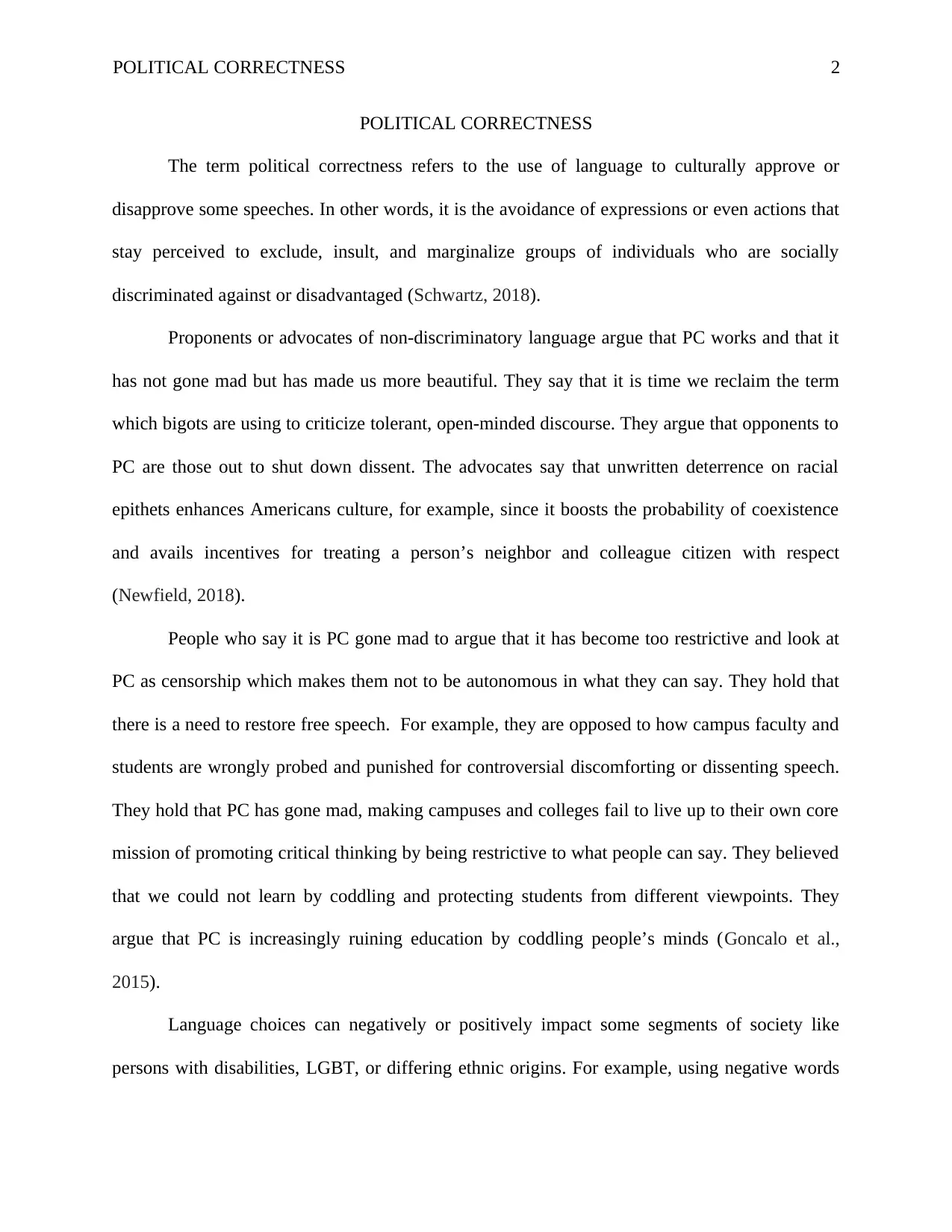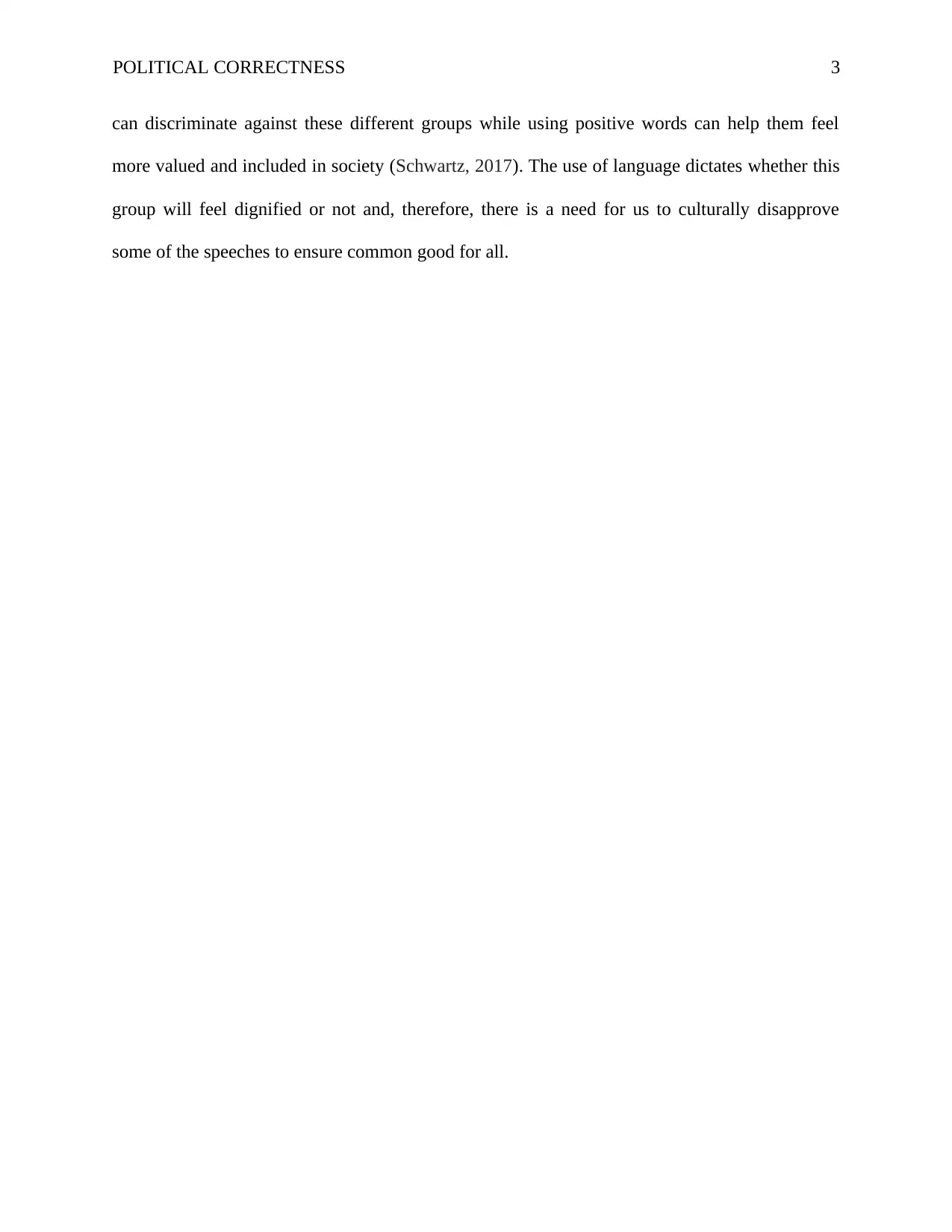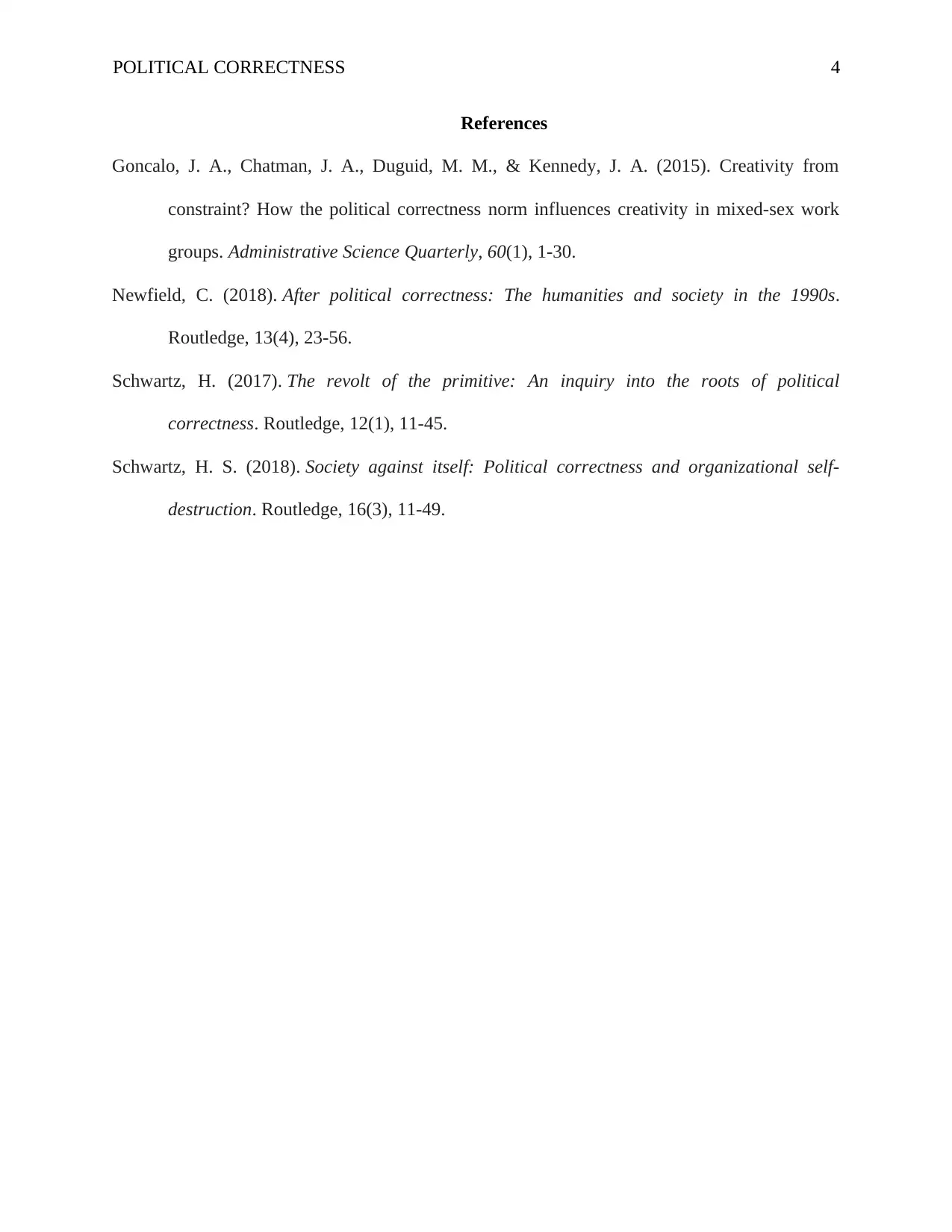Political Correctness: Analyzing the Discourse and Consequences
VerifiedAdded on 2023/01/20
|4
|542
|51
Essay
AI Summary
This essay delves into the concept of political correctness, examining its definition as the use of language to culturally approve or disapprove of certain expressions, with a focus on avoiding speech that might marginalize or discriminate against specific groups. It presents both sides of the argument, highlighting proponents who believe it promotes tolerance and inclusivity by discouraging offensive language, and opponents who view it as censorship that stifles free speech and critical thinking. The essay references academic sources to support its claims, exploring the impact of language choices on groups like people with disabilities and the LGBT community. It concludes by emphasizing the importance of considering the effects of language on society and the need to promote common good through culturally sensitive communication.
1 out of 4







![[object Object]](/_next/static/media/star-bottom.7253800d.svg)